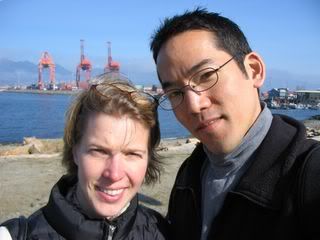Another example of not thinking through the consequences of the consequences is the standard reaction in economics to Ricardo’s law of comparative advantage giving benefit on both sides of trade. Ricardo came up with a wonderful, non-obvious explanation that was so powerful that people were charmed with it, and they still are, because it’s a very useful idea. Everybody in economics understands that comparative advantage is a big deal, when one considers first order advantages in trade from the Ricardo effect. But suppose you’ve got a very talented ethnic group, like the Chinese, and they’re very poor and backward, and you’re an advanced nation, and you create free trade with China, and it goes on for a long time.
Now let’s follow and second and third order consequences: You are more prosperous than you would have been if you hadn’t traded with China in terms of average well-being in the United States, right? Ricardo proved it. But which nation is going to be growing faster in economic terms? It’s obviously China. They’re absorbing all the modern technology of the world through this great facilitator in free trade, and, like the Asian Tigers have proved, they will get ahead fast. Look at Hong Kong. Look at Taiwan. Look at early Japan. So, you start in a place where you’ve got a weak nation of backward peasants, a billion and a quarter of them, and in the end they’re going to be a much bigger, stronger nation than you are, maybe even having more and better atomic bombs. Well, Ricardo did not prove that that’s a wonderful outcome for the former leading nation. He didn’t try to determine second order and higher order effects.
If you try and talk like this to an economics professor, and I’ve done this three times, they shrink in horror and offense because they don’t like this kind of talk. It really gums up this nice discipline of theirs, which is so much simpler when you ignore second and third order consequences.
The best answer I ever got on that subject – in three tries – was from George Schultz. He said, “Charlie, the way I figure it is if we stop trading with China, the other advanced nations will do it anyway, and we wouldn’t stop the ascent of China compared to us, and we’d lose the Ricardo-diagnosed advantages of trade,” which is obviously correct. And I said, “Well George, you’ve just invented a new form of the tragedy of the commons. You’re locked in this system and you can’t fix it. You’re going to go to a tragic hell in a handbasket, if going to hell involves being once the great leader of the world and finally going to the shallows in terms of leadership.” And he said, “Charlie, I do not want to think about this.” I think he’s wise. He’s even older than I am, and maybe I should learn from him.
Makes sense to me.


No comments:
Post a Comment